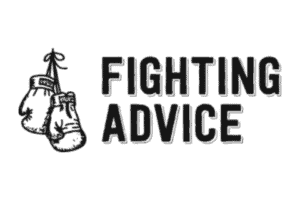Feeling stuck in a rut with your Brazilian Jiu-Jitsu training can be frustrating. You’ve been putting in the hours on the mats, but for some reason, your game just isn’t progressing the way you want it to. If this sounds familiar, don’t worry—you’re not alone.
You Don’t Drill Enough
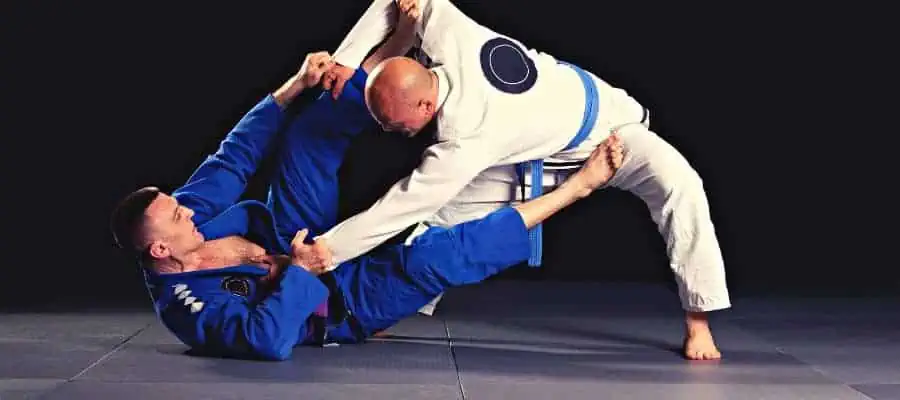
You must put in the time on the mat to improve at Jiu-Jitsu. Drilling is one of the most effective ways to do this. It allows you to focus on a specific technique or movement and ingrain it into your muscle memory.
Unfortunately, many people shy away from drilling, as it can be tedious and monotonous. However, suppose you’re serious about improving your Jiu Jitsu game. In that case, you must make drilling a regular part of your training regime.
You’re Not Rolling Enough
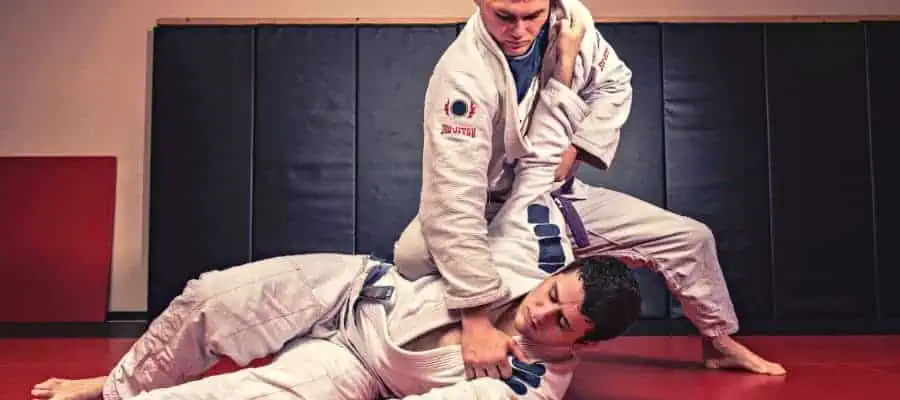
Rolling is another essential training element if you want to improve at jiu-jitsu. It allows you to practice your drills and test your techniques against a resisting opponent. While drilling is essential for ingraining the correct movement patterns, rolling is what will ultimately prepare you for the real thing.
Rolling will also help you develop a better sense of timing and rhythm and improve your cardio. It will also make you tougher, both mentally and physically.
You’re Not Training With Enough Intensity
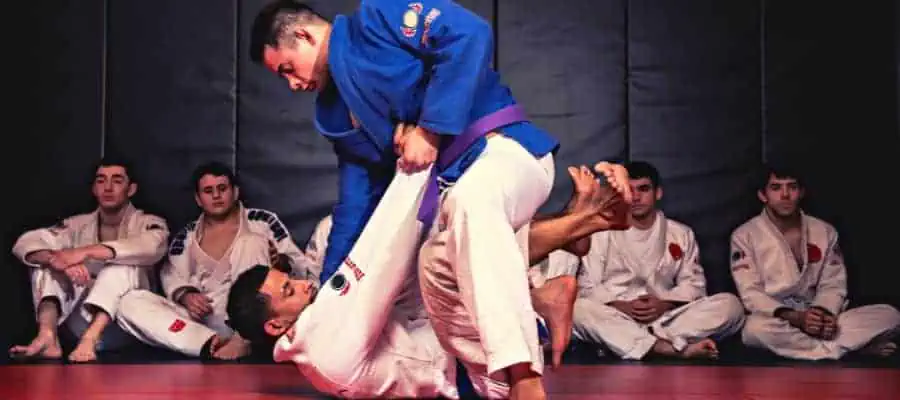
If you’re not pushing yourself hard enough in training, you’ll never get better at jiu-jitsu. It’s important to remember that this is a combat sport, and you need to be prepared to give it your all when the time comes.
This means training with intensity and putting everything you have into every single session. But be careful of overtraining. Going all out every time is not only incredibly tiring, but it can also lead to injury.
So it’s crucial to find a balance and ensure you’re pushing yourself but not overdoing it. Chances are, however, that you are most likely undertraining than overtraining.
You’re Not Using Proper Technique
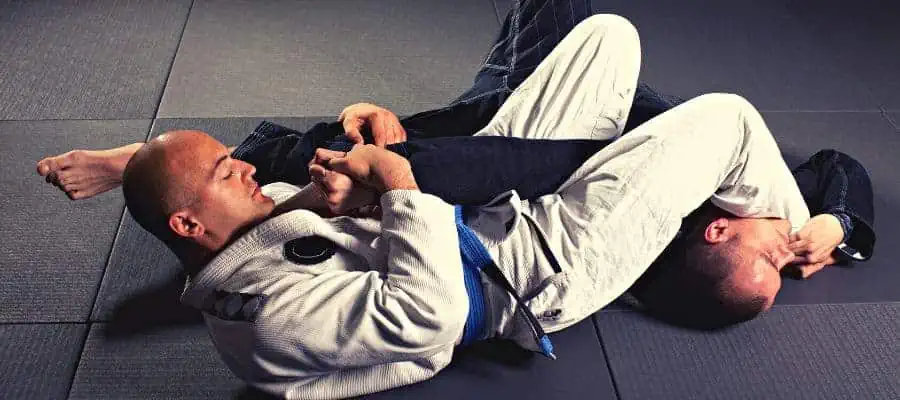
The technique is paramount in jiu-jitsu. If you’re not using the correct procedures, you will not be effective against someone who does. This is why it’s essential to drill regularly and focus on nailing down the correct movement patterns.
Training a movement until it becomes a part of your muscle memory is necessary if you want to execute it properly in a live situation. Like in any other martial art or sport, proper technique is the key to success in jiu-jitsu.
You’re Not Improving Specific Techniques

When drilling, it’s essential to focus on specific techniques rather than just going through the motions. If you’re unsure how to do this, ask your coach for help or look up drills online. The more specific your drilling is, the better your technique will become. Every single bit of a technique is important and needs to be practiced for it to become second nature.
Only a tiny movement of the hips in a specific technique can mean winning or losing a position or the whole match. Even if it seems silly and unimportant, if you want to get better at jiu-jitsu, you need to focus on mastering the specifics.
You’re Training Too Much

It might seem counterintuitive, but sometimes less is more when training jiu-jitsu. If you’re training too much, you’re not giving your body enough time to recover, which can lead to injuries.
It’s important to find a balance in your training and make sure you’re not overdoing it. Overtraining can lead to mental and physical burnout, which you want to avoid if you’re serious about getting better at jiu-jitsu.
However, most beginners will not overtrain as they are not physically or mentally ready for that training. The body needs to get used to the rigors of jiu Jitsu training before it can handle more.
You’re Not Eating Properly
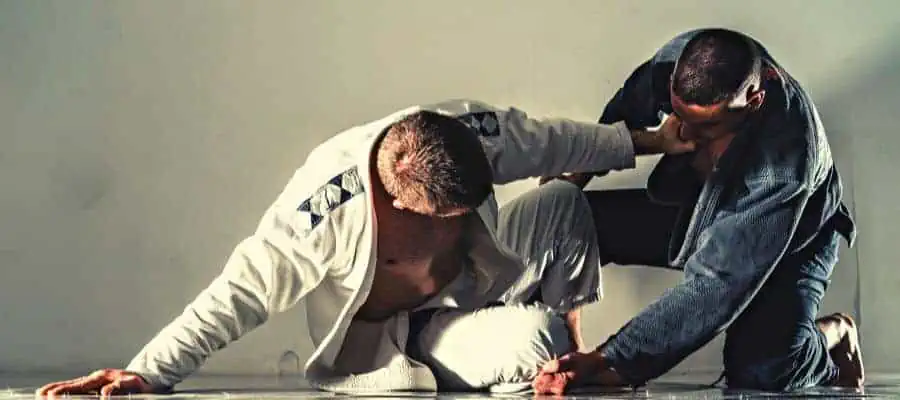
What you eat has a significant impact on your performance in jiu-jitsu. If you’re not eating a healthy, balanced diet, then you’re not going to have the energy or strength you need to train effectively. Ensure you’re fueling your body with the right foods to give your best in every session.
You should know at least the baseline for your caloric needs and get a minimum of that daily. Protein is also a must as it’s essential for muscle growth and repair.
It is recommended checking out The Fighter Diet if you’re looking for a healthy, balanced diet to help you perform at your best. Also, ensure to eat lots of vegetables and fruits as they are packed with nutrients essential for good health.
You’re Not Sleeping Enough
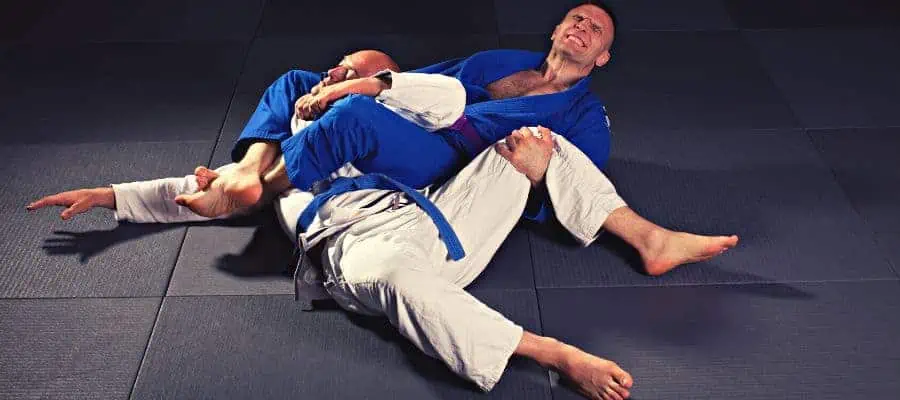
Like with nutrition, sleep is also essential for optimal performance in jiu-jitsu. Make sure you’re getting enough rest to perform at your best. You will be tired and rundown during training if you’re not getting enough sleep. This will impact your technique and make it harder for you to learn new things.
A minimum of 7 hours of sleep is what usually recommended for most people, but some might need more. Listen to your body and ensure you’re getting the rest you need. An occasional nap can also be helpful if you don’t have time to sleep during the night.
You’re Not Stretching Enough
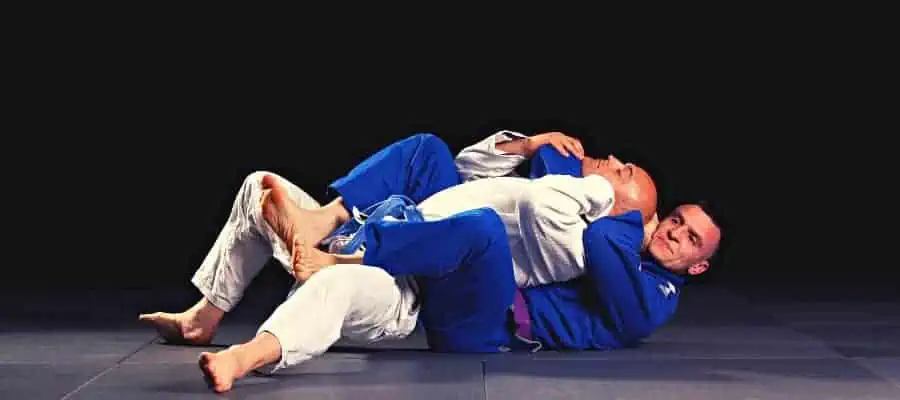
Jiu-jitsu is a physically demanding sport. If you’re not stretching correctly, you’re putting yourself at risk of injury. It’s important to warm up before training and to cool down afterward with some static stretching. This will help keep your muscles loose and prevent them from tightening up. Working on your flexibility is crucial as it will help you execute techniques more effectively.
There are many different stretching routines that you can do, so find one that works for you and make sure to do it regularly. The flexibility of the hips, hamstrings, and shoulders is critical in jiu-jitsu, so make sure to focus on those areas.
You Have Bad Habits
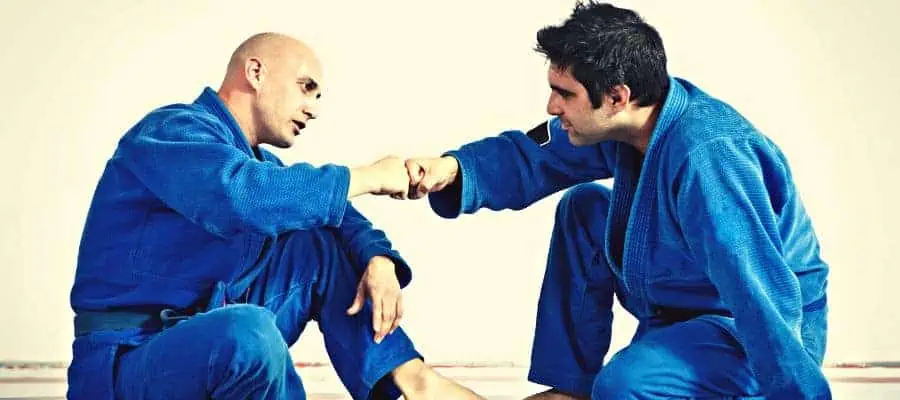
We all have bad habits, but if you want to improve at jiu-jitsu, you must work on breaking them. Habits like slouching, fidgeting, and not paying attention can all negatively impact your performance. If you catch yourself doing these things, make a conscious effort to stop and focus on correcting your posture or staying still.
It is recommended focusing on losing one of your bad habits at a time, so you don’t get overwhelmed. For example, if you’re working on not giving up your top position, then don’t worry about anything else; just focus on that.
You’re Not Listening To Your Coach
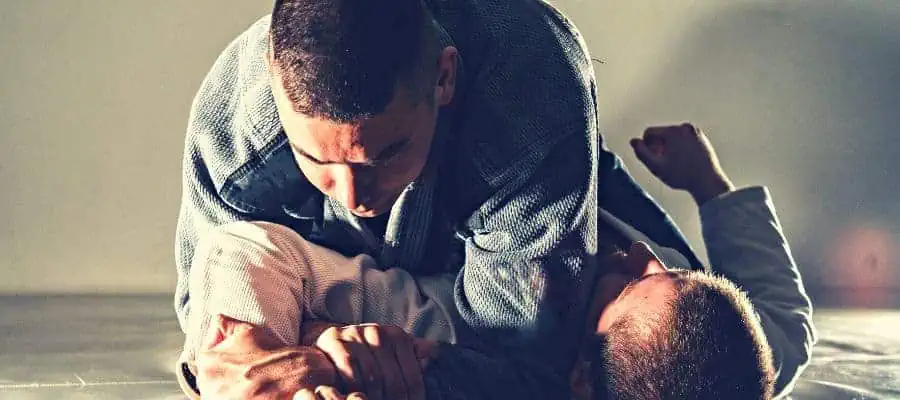
It’s important to have trust in your coach and to follow their guidance if you want to get better. Your coach is there to help you, so you must listen to what they’re saying. If you’re not paying attention or constantly questioning their techniques, then you’re not going to improve as quickly as possible.
Of course, you don’t have to agree with everything your coach says, but it’s essential to at least listen to their opinion and try out what they’re suggesting. If you still don’t like it, you can always return to what you did before. But at least give their ideas a chance before writing them off.
You’re Not Training With The Right People
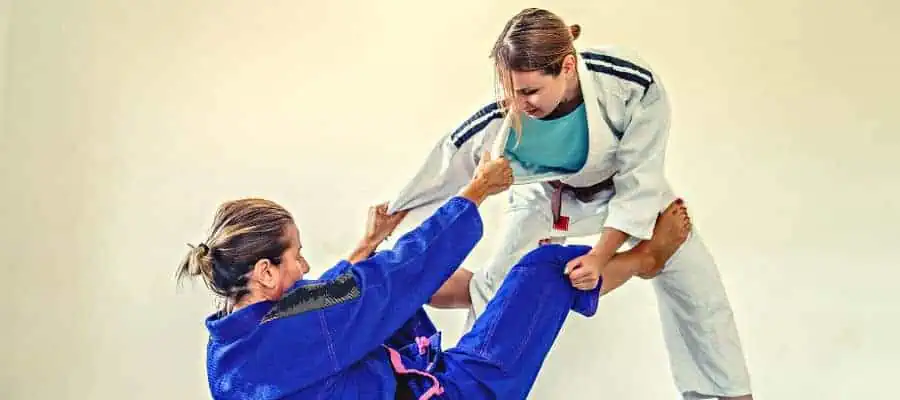
The quality of your training partners can significantly impact your development. If you’re constantly rolling with people who are much better than you, then you’re not going to improve as quickly.
It’s important to find training partners at a similar level so that you can challenge each other and push each other to improve. Sometimes you will have to train with people you do not like or are worse than you, but try to make the best of the situation. Remember, once you were also a complete beginner.
You’re Not Competing
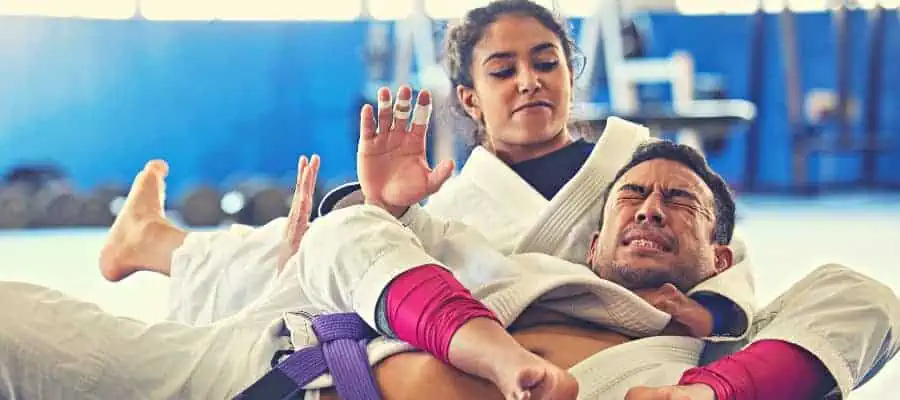
Competition is a great way to test your skills and to see how far you’ve come. It can be nerve-wracking, but it’s also a lot of fun. If you’re not competing, you’re missing out on an essential part of the Jiu-Jitsu journey.
Competing will force you to step outside your comfort zone and push yourself. It’s also a great way to meet new people and to see how you stack up against other practitioners. If you’re unsure if you’re ready to compete, talk to your coach and see what they think.
You’re Not Setting Goals
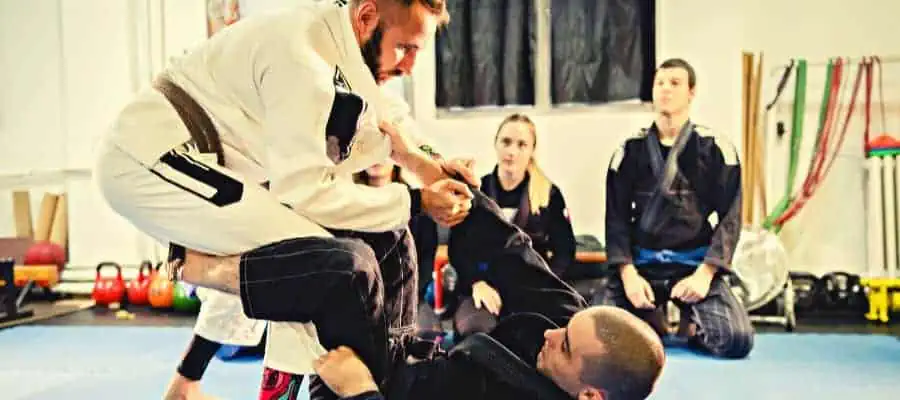
Setting goals is essential in any endeavor, but it’s crucial in jiu-jitsu. Without goals, it’s easy to become frustrated and lose motivation. But if you have specific goals that you’re working towards, it’s easier to stay focused and see your progress.
Some goals you might want to set include learning a new technique, entering a competition, or reaching a certain belt level. Whatever you choose, make sure that your goals are specific and achievable.
You’re Not Enjoying Yourself
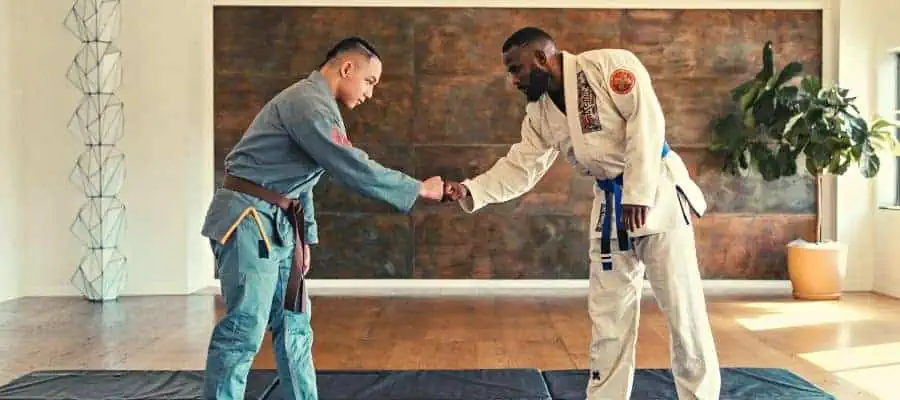
Jiu-jitsu is supposed to be fun. It’s a great way to exercise, meet new people, and learn self-defense. If you’re not enjoying yourself, it’s time to take a step back and reassess why you’re doing it.
It’s okay to have bad days, but if you’re consistently dreading going to training, it might be time to take a break or try a different academy. Most importantly, you find a way to enjoy the journey.
You’re Not Training Regularly Enough
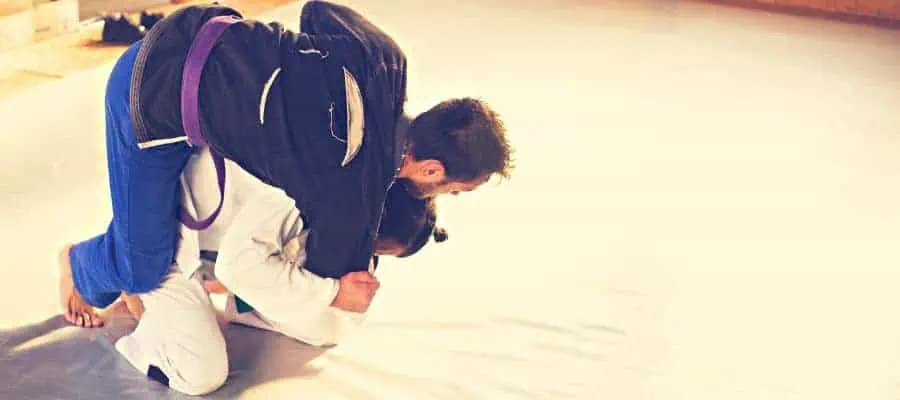
One of the most important things you can do to improve at jiu-jitsu is to train regularly. That means showing up to class consistently and putting in the work even when you don’t feel like it. It will take much longer to improve if you only train once a week or sporadically. Training 4 to 5 times a week is ideal if you are serious about your BJJ.
You’re Not Doing Enough Cardio

Cardio is vital for jiu-jitsu practitioners for a few reasons. First, it helps to improve your endurance to last longer in matches or training sessions. Second, it can help you to lose weight and get in better shape. And third, it’s just plain good for your health!
If you’re not doing any cardio, start by adding a few minutes of running or jump rope to your warm-up routine. Once you get used to that, you can start increasing the length and intensity of your workouts.
Doing additional cardio like running, swimming, biking, or playing other sports can also be beneficial. These activities will help to improve your overall fitness level.
Swimming, for example, can be a great cardio tool since it’s low impact and works many different muscles.
You’re Not Lifting Weights
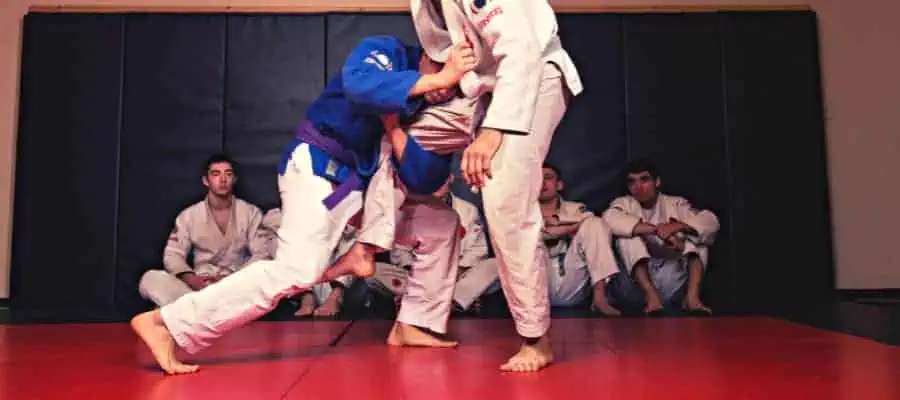
Lifting weights is another excellent way to improve your endurance and get in better shape for jiu-jitsu. It can also help to prevent injuries. If you’re not lifting weights, start by adding a few basic exercises to your routine.
Some exercises beneficial for jiu-jitsu practitioners include squats, deadlifts, presses, and rows. You can also work out focusing on specific muscle groups like your core or your legs.
Turkish get-ups are also an excellent exercise for jiu Jitsu as they help to improve your balance and coordination.
You’re Not Tracking Your Progress
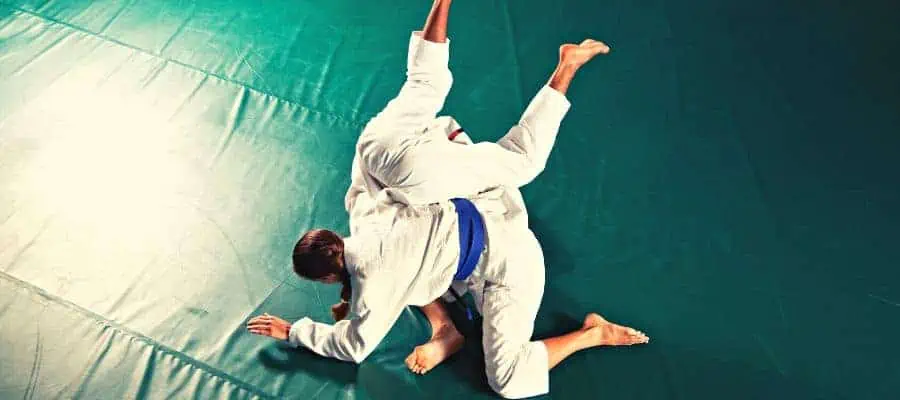
If you’re not tracking your progress, it’s hard to see how far you’ve come and what you need to work on. That’s why it’s important to keep a training journal or logbook. Write down the techniques you’re learning, the matches you’re playing, and your thoughts on your progress.
Keeping a training journal can also help you to set goals and track your progress over time.
You’re Not Seeking Feedback
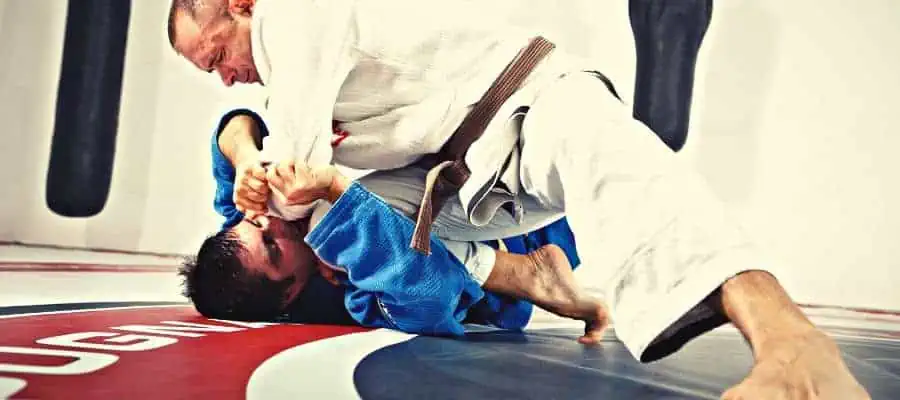
Ask your coach or training partners for their honest opinion on your jiu Jitsu game. This will help you identify any areas that need improvement. You will not know what you need to improve in your technique if you’re not asking for feedback.
Conclusion
Jiu-jitsu is a lifelong journey, and there’s always room for improvement. If you’re not getting better, it’s time to look at your training and see where you can make some changes. Use this list as a starting point and see where you can start making some improvements.
Recent Posts
What is Manachai's Fighting Style? Unveiling Muay Thai Mastery
Manachai, a celebrated figure in the Muay Thai world, has captivated audiences with his exemplary martial prowess. Hailing from the heartlands of Thailand, his name is synonymous with the art of...
What Was Chamuekpet Hapalang's Fighting Style? Unveiling Techniques
Chamuekpet Hapalang was a renowned figure in the world of Muay Thai (record 200-48-2), embodying a fusion of Muay Bouk and Muay Khao styles. Originating from Thailand, the art of Muay Thai is known...
